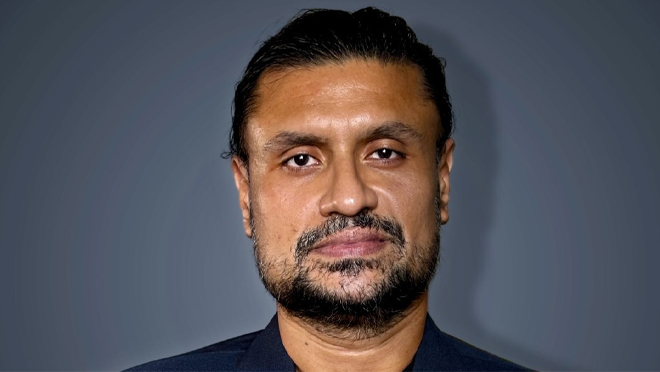Daniel Afzalur Rahman’s new vision for Shilpakala
Daniel Afzalur Rahman’s new vision for Shilpakala

When Daniel Afzalur Rahman was announced as the new Director of the Production Department at the Bangladesh Shilpakala Academy on 22 September, it felt like a natural progression for a man whose career has been defined by cultural reinvention.
With roots in both private media and cultural institutions, he has long been recognised as a change-maker—someone who understands both the demands of tradition and the urgency of innovation.
Over the years, Daniel has helped reshape Bangladesh’s radio landscape, ushering in fresh ideas that redefined how a generation consumed music and cultural programming.
Now, as he takes the helm at the country’s premier state institution for the arts, his ambitions are even larger: to create a cultural ecosystem where classical forms coexist with the modern, the local engages with the global, and creativity becomes accessible to all.
“Working in Bangladesh’s arts and culture scene is a huge responsibility and opportunity,” he said.
“My goal is to promote arts and culture across the country so that it booms with renewed prosperity. This includes all kinds of arts and culture. I also want to modernise things a bit.”
For Daniel, that modernisation means rethinking long-held assumptions about what counts as “culture.” Classical dance and music may be essential, but so too are contemporary forms like hip-hop, digital art, and even K-pop.
“The bottom line is to broadly spread arts and culture throughout the country,” he explains. “I believe it is essential for a normal, healthy life for our people.”
Daniel’s credibility as a reformer stems in part from his work during the early days of FM radio in Bangladesh. He was among the pioneers who injected energy into a stagnating media landscape, introducing programming that resonated with younger audiences and reflected global trends.
“The change we brought with radio was a change in the music scene, but even that wasn’t very lasting,” he reflects.
“However, it did bring about a lasting cultural change because my belief is that arts and culture should not be forced upon people. People gravitate towards something on their own, and then you just have to promote or provide a platform for that thing.”
That philosophy—of enabling rather than dictating—remains central to his vision for the Shilpakala Academy. And in a society where younger generations are increasingly exposed to global trends, he sees even greater potential.
“This generation is more globally exposed and more credible,” he notes. “We have to do the same thing now—provide platforms for what people already love.”
Of course, moving from the private sector to a public cultural institution is no small shift. The bureaucracy and structural limitations of state organisations often present hurdles to innovation. But Daniel is cautiously optimistic.
“Working in the Shilpakala Academy will have its own unique challenges,” he admits. He credits the leadership around him, including filmmaker Mostofa Sarwar Farooki, now serving as Adviser on Cultural Affairs. “People like Farooki are very hard-working; you’ll see he doesn’t just sit around. These are the reasons I finally made the decision to join the Academy,” Daniel says.
At the heart of his mission is a simple but profound belief: Bangladeshi arts and culture must reflect the lives and aspirations of its people.
“In my opinion, we have not been able to make our arts and culture truly Bangladeshi in many senses yet,” Daniel says. “Therefore, my mission is to ensure that things our people do, things they want, and things that affect Bangladeshi life and culture will get priority here.”
That means an expanded cultural canvas—where band music, hip-hop, and digital art can stand alongside Rabindra Sangeet or traditional dance. It also means recognising overlooked communities of artists. “Even groups who are doing K-pop in our country—why not?” he asks. “I think arts and culture are all about freedom.”
For Daniel, the task ahead will not be accomplished overnight. But he envisions a parallel strategy of short-term initiatives and long-term reforms that can gradually revitalise Shilpakala Academy’s role in national life.
“We have already done many things, and the plan is to replicate our successes for the whole Shilpakala Academy on a large scale,” concluded with confidence. “It’s not a one-day job, but short-term and long-term tasks will run concurrently. So let’s see what happens.”


